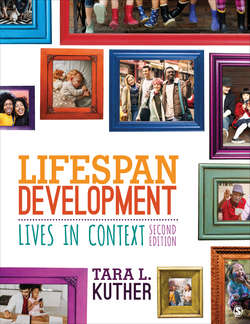Читать книгу Lifespan Development - Tara L. Kuther - Страница 404
На сайте Литреса книга снята с продажи.
Apply Your Knowledge
ОглавлениеResearchers who study deception in children must find unique ways of determining when young children are capable of lying. In one study (Saarni, 1984), children were given a desirable toy and promised that they would receive another. Instead, they received an undesirable gift that was not a toy. The child’s facial expressions, nonverbal behavior, and emotional displays were recorded. The researchers were interested in when children would begin to mask their feelings and lie about the desirability of the gift. In another study (Lewis, Stanger, & Sullivan, 1989), young children were left alone in a laboratory environment, told by the researcher not to peek at a toy in the researcher’s absence, and later questioned about whether they had peeked at the toy. Other studies (Polak & Harris, 1999) entailed the researcher telling children not to touch the toy and later questioning them about whether they had touched the toy in the researcher’s absence.
1 How does cognitive development influence children’s ability to deceive?
2 What emotional capacities does lying require?
3 When would you expect young children to become capable of lying? Why?
4 Do you think moral reasoning is related to lying?
5 What are ethical issues entailed in research on deception in children? How might considerations of children’s feelings of guilt, shame, or frustration and their developing capacities for self-regulation inform this question?
